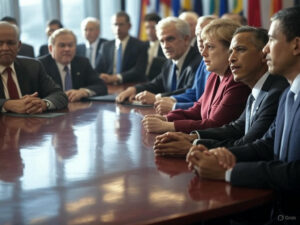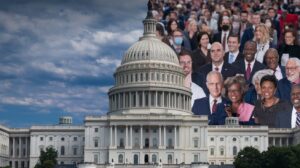Trump’s Crackdown on Free Speech: Unprecedented Measures Stir Controversy
President Donald Trump’s administration has launched an aggressive crackdown on free speech in the United States, sparking nationwide debates about the erosion of First Amendment rights. The latest measures target student protesters, media outlets, and academic institutions, raising concerns about government overreach and political suppression.
Understanding Trump’s Free Speech Crackdown
Free speech has been a cornerstone of American democracy, ensuring that individuals can express opinions without government interference. However, the recent actions taken by the Trump administration have raised concerns about whether these rights are under threat. In this article, we break down each component of this controversy and its implications for the future of democracy.
Key Actions and Their Impact
| Government Action | Target | Impact |
|---|---|---|
| ICE crackdown on student activists | Pro-Palestinian students | Arrests and legal actions against student activists |
| Funding cuts to universities | Columbia University and others | Policy changes that restrict campus protests |
| Media restrictions | Associated Press, NPR, PBS | Press freedom under threat, legal battles initiated |
| FCC investigations | Independent media organizations | Potential control over public narratives |
ICE Targets Student Protesters: A Threat to Political Expression
One of the most alarming developments is the direct targeting of student protesters, particularly those advocating for Palestinian rights. Immigration and Customs Enforcement (ICE) has begun tracking students who express pro-Palestinian views on social media.
A major case involves Mahmoud Khalil, a Columbia University graduate student and legal permanent resident, who was arrested for his activism. President Trump publicly endorsed the arrest, stating, “This is the first arrest of many to come.”
This has set a dangerous precedent, as arresting students for expressing political views raises constitutional concerns. Legal experts warn that such crackdowns mirror tactics used in authoritarian regimes to silence opposition.
Academic Institutions Under Pressure: The Columbia University Case
Columbia University is at the center of this controversy after losing $400 million in federal funding due to its handling of student protests. The government’s intervention forced the university to revise its policies, including its definitions of antisemitism and disciplinary actions against protesters.
While proponents argue that these changes are necessary to curb campus disruptions, critics believe they suppress free expression. This raises concerns about whether universities will be forced to prioritize government interests over academic freedom in the future.
The Media Under Fire: Is Press Freedom at Risk?
A free press is fundamental to democracy, but recent actions by the Trump administration suggest an effort to control public narratives. The Associated Press (AP) was banned from the White House press pool after refusing to comply with an administration demand to rename the Gulf of Mexico to “Gulf of America.” The AP has since filed a lawsuit, arguing that this exclusion violates the First Amendment.
Additionally, the Federal Communications Commission (FCC), led by Trump appointee Brendan Carr, has launched investigations into NPR and PBS. These moves have been widely criticized as attempts to intimidate and suppress independent journalism.
The Legal and Public Response: Can Free Speech Be Protected?
Legal scholars and civil rights organizations are fighting back against these measures. Critics argue that they echo McCarthy-era suppression tactics, creating a chilling effect on dissent. Organizations such as the American Civil Liberties Union (ACLU) are leading efforts to challenge these restrictions in court.
One major case, covered by The Guardian, highlights multiple lawsuits filed against the administration in defense of free speech. The legal battles ahead will determine whether these actions become a lasting precedent or are struck down as unconstitutional.
The Future of Free Speech in America
As these controversies unfold, it is crucial to consider the long-term implications for American democracy. If free speech restrictions continue, future administrations could expand such measures, further limiting political discourse and media independence.
Future Implications of Free Speech Restrictions
Free Speech Restrictions
|
-----------------------------
| |
Student Activism Press Freedom
| |
Less Political Protests Censorship & Misinformation
|
Academic Institutions' ComplianceThe battle over free speech is not just about the Trump administration—it is about whether fundamental rights will be protected for future generations. Ensuring a robust defense of the First Amendment is crucial for maintaining a truly democratic society.





